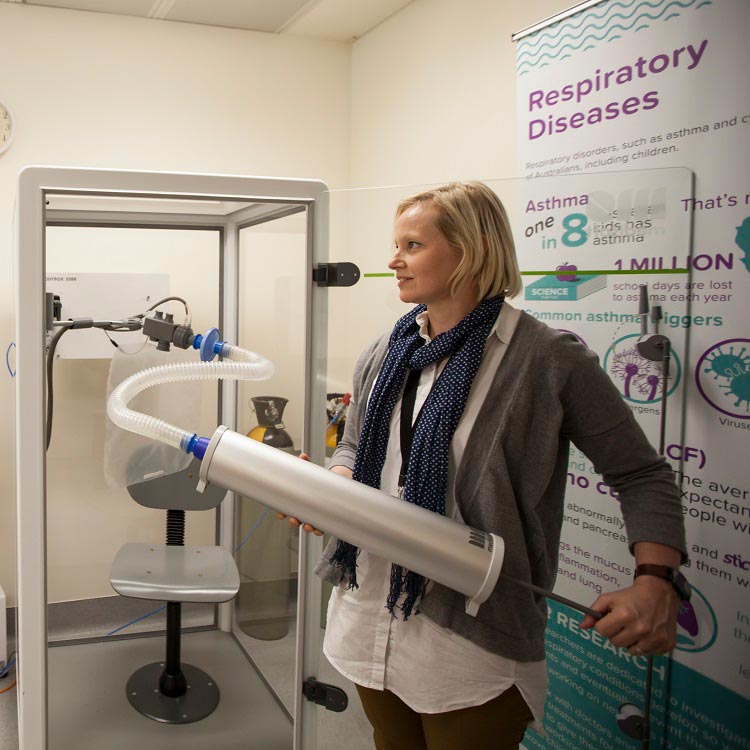Search
Research
Clinical investigation of respiratory system admittance in preschool childrenWe compared the ability of Ars, to standard oscillatory outcomes, to determine respiratory disease and differentiate responses to inhaled bronchial challenges.
Research
Air Trapping on Chest CT Is Associated with Worse Ventilation Distribution in Infants with Cystic FibrosisIn school-aged children with cystic fibrosis (CF) structural lung damage assessed using chest CT is associated with abnormal ventilation distribution.
Research
Exciting new clinical trials in cystic fibrosis: Infants need not applyThe recent announcement of the negative results of the TIGER- 2 phase 3 study of denufosol tetrasodium

News & Events
Very preterm babies at risk of declining lung function throughout childhoodA The Kids Research Institute Australia study published in The Lancet Child & Adolescent Health has found that survivors of very preterm birth face declining lung function
Research
Use of a primary epithelial cell screening tool to investigate phage therapy in cystic fibrosisThis study demonstrates the feasibility of utilizing pre-clinical in vitro culture models to screen therapeutic candidates
Research
Changing Prevalence of Lower Airway Infections in Young Children with Cystic FibrosisAspergillus species and P. aeruginosa are commonly present in the lower airways from infancy
Research
Microbiome and Functional Analysis of a Traditional Food Process: Isolation of a Novel Species (Vibrio hibernica) With Industrial PotentialVibrio hibernica is capable of metabolizing a unique carbohydrate profile at low temperatures
Research
Chest imaging in cystic fibrosis studies: What counts, and can be counted?The aim of this study is to characterize the role of currently available CT and MRI markers in clinical studies, and to discuss challenges with CF studies.
Research
The AREST CF experience in biobanking - More than just tissues, tubes and time.Research to further improve outcomes for people with CF is dependent upon well characterised, archived and accessible clinical specimens.
Research
Air pollution during pregnancy and lung development in the childAir pollution exposure has increased in recent years and there is evidence that exposure to particulate matter can lead to adverse respiratory outcomes.
